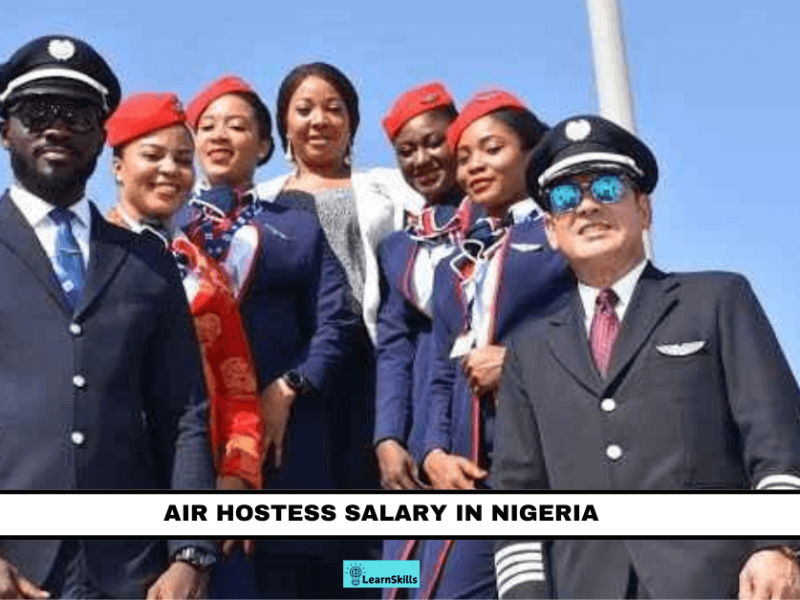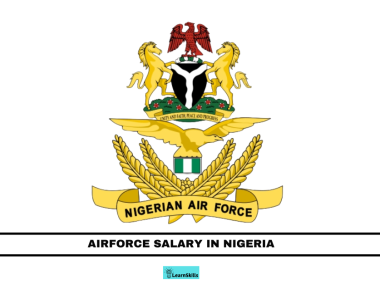An air hostess in Nigeria typically earns between NGN100,000 and NGN300,000 per month, depending on the airline. This amount reflects the varying pay scales across different companies in the aviation industry.
In addition to the base salary, many flight attendants receive supplementary compensation, including benefits and bonuses. The estimated total pay can reach around NGN797,885 monthly for certain positions.
Equipped with this knowledge, you can better assess whether this career path aligns with your financial goals and lifestyle.
Understanding the Role
To be an air hostess in Nigeria, you need to know your responsibilities and what skills are essential for success. This profession involves ensuring passenger safety and providing excellent service throughout their journey.
Job Description
As an air hostess, your primary role is to ensure the safety and comfort of passengers during flights. You conduct safety demonstrations, assist with boarding and disembarking, and manage in-flight services.
Main responsibilities include:
- Safety Checks: Ensure all safety equipment is functional and inform passengers of emergency procedures.
- Customer Service: Attend to passengers’ needs, responding to questions and assisting.
- Conflict Resolution: Handle any issues during the flight calmly and professionally.
You work closely with the cabin crew to create a pleasant atmosphere. Your role is vital to the airline’s reputation and customer satisfaction.
Skills and Qualifications
To excel as an air hostess, certain qualifications and skills are necessary.
Typically, a high school diploma or equivalent is required, but many airlines prefer candidates with a degree in hospitality or customer service.
Key skills include:
- Interpersonal Skills: You must communicate effectively with passengers and team members.
- Customer Service: Providing a friendly experience is vital for passenger satisfaction.
- Problem-Solving: You’ll often need to think quickly to resolve issues.
Physical fitness and a professional appearance are also important. Airlines conduct background checks and require medical examinations to ensure that you are fit for travel in varying conditions.
Requirements for Becoming an Air Hostess
Becoming an air hostess involves meeting several specific requirements. You must focus on age, education, health, fitness, and language skills. Each of these areas is crucial for your success in this career.
Minimum Age and Education
You must be 18 years old to apply as an air hostess. Some airlines may require candidates to be 21 years or older.
A minimum of secondary school graduation is often required. Many airlines prefer candidates with higher education qualifications, such as an associate degree or a diploma in aviation or hospitality.
Completing a cabin crew training program at an accredited aviation college can give you an edge in your application process.
Health and Fitness Standards
Health and fitness are important for air hostesses. Airlines have specific health standards you must meet. For example, you may need to pass a medical examination.
You should have good vision, typically 20/40 or better in at least one eye. Weight standards vary and are based on your height. To access the overhead compartment, airlines also require a certain arm reach. Regular exercise and a healthy lifestyle are encouraged to maintain fitness.
Language Proficiency
Language skills are essential for air hostesses. You must be proficient in written and spoken English.
Clear communication is vital for ensuring passenger safety and service. Some airlines may also prefer candidates who can speak an additional language, especially in regions with diverse populations.
Taking language courses can enhance your skills, and help you handle language barriers,, creating a better experience for travelers, and increase your employability in this field.
The Application Process
Applying to become an air hostess in Nigeria involves several important steps. You need to prepare a strong CV and be ready for recruitment events. Both elements are crucial to making a good impression and securing a position.
Preparing Your CV
Your CV is your first chance to impress potential employers. Make sure it is clear, concise, and well-structured. Include the following key sections:
- Contact Information: List your name, phone number, and email address.
- Objective Statement: Write a summary of your career goals and why you want to become a flight attendant.
- Education: List your educational background, including relevant certifications.
- Experience: Highlight any customer service or hospitality experience, even if it’s informal.
Include a professional photograph to give a personal touch. Ensure the photo is recent and professionally presents you. Tailor your CV to match the specific requirements of the airline you are applying to.
The Recruitment Event
Recruitment events are often hosted by airlines looking for new flight attendants. Attend these events prepared to showcase your skills. Here’s what to keep in mind:
- Research the Airline: Understand their values and culture. This helps you align your answers during interviews.
- Dress Professionally: Wear appropriate business attire to make a positive first impression.
- Practice Interview Skills: Be ready to answer questions about customer service and teamwork scenarios.
Bring multiple copies of your CV and any necessary documents. Interact confidently with recruiters. This is your chance to stand out among many applicants.
Compensation and Benefits
When considering a career as an air hostess in Nigeria, you may want to understand the salary and additional benefits available. Compensation can vary based on the airline and experience, but the perks can enhance your overall earnings and job satisfaction.
Salary Expectations in Nigeria
As an air hostess in Nigeria, your monthly salary typically ranges from NGN 100,000 to NGN 300,000. More experienced flight attendants or those working for larger airlines may earn an estimated NGN 797,885 monthly.
Many airlines offer tax-free salaries, which can significantly increase your take-home pay.
Factors like flight routes, specific airline policies, and your job role influence the salary. For instance, flight attendants working on international flights might receive higher compensation.
Additional Perks and Benefits
Air hostesses often receive several attractive benefits beyond their base salary. Many airlines provide accommodation for cabin crew members, especially during layovers. This can save you money and improve your lifestyle.
Medical insurance is another common benefit, ensuring access to healthcare while employed. Additionally, many airlines offer travel benefits. This means you can explore various destinations while working.
These perks can add substantial value to your compensation package. A career as an air hostess is financially rewarding and rich in experiences and opportunities.










